As people with cerebral palsy completed their schooling, Neil had a vision of establishing a large factory where people with physical disabilities would work side by side with able-bodied people. In 1961 Centre Industries was established in Allambie Heights, largely built with volunteer labour and donated materials.
Over the next 11 years the Centre Industries factory, now known as Packforce, was extended following the winning of major contracts from Telecom, Sagem and GTE Australia Ltd.
In 1974, Neil resigned as a Director of The Spastic Centre to take up the full-time position of Managing Director of Centre Industries. At this stage, Centre Industries was employing some 300 people with physical disabilities and 200 able-bodied people.
We invite you to take a look back and discover the incredible progress we have made together. Here are some of the key moments and events that have shaped Cerebral Palsy Alliance.
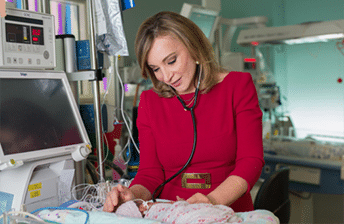
A 40% drop in the rate of cerebral palsy was reported from 2.4 in birth years in 1997-98 to 1.5 in birth years in 2015-2016.
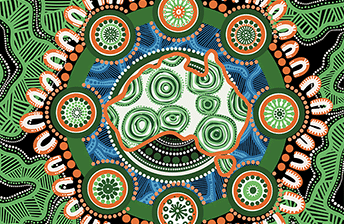
In 2019 we established our Reconciliation Action Plan (RAP) Working Group Burbangana.
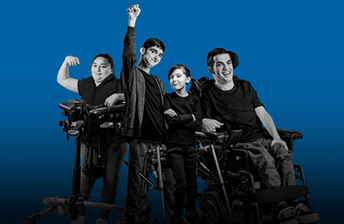
STEPtember’s global fundraising campaign raises over $20 million.
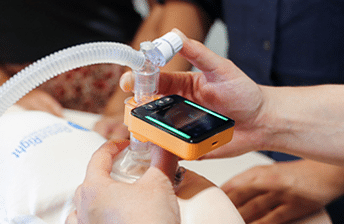
ResusRight develops a neonatal resuscitation monitor with funding from Cerebral Palsy Alliance.
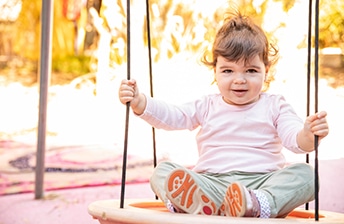
The First Early Diagnosis Clinic opened in Prairiewood, 2018. We've since opened one at Sydney Children's Hospital, 2021 and in the Hunter, 2023.

Collaborated on Australia’s first stem cell clinical trial for people with cerebral palsy.
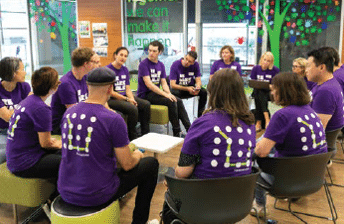
Remarkable, our innovative disability tech start-up accelerator, launched.

A friends of Cerebral Palsy Alliance organisation established in New York.
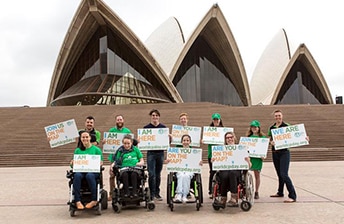
World CP Day established; over 100 countries currently participate.
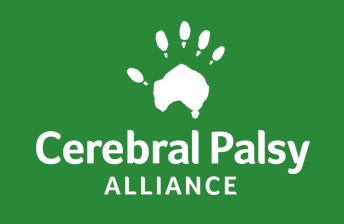
The Spastic Centre changed its name to Cerebral Palsy Alliance.
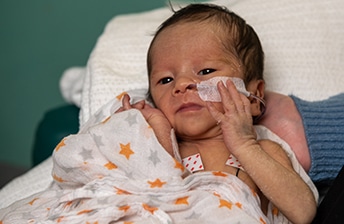
Australian Cerebral Palsy Register was set up, and is now one of the world's largest databases of its kind.
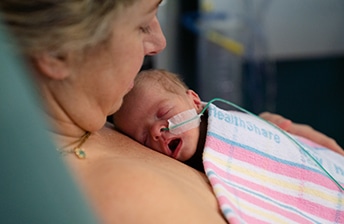
Research Foundation and Cerebral Palsy Alliance Research Institute founded, now a global leader in cerebral palsy research.
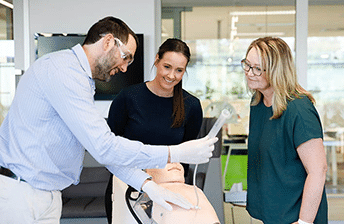
Established a Registered Training Organisation, now called Training Alliance.
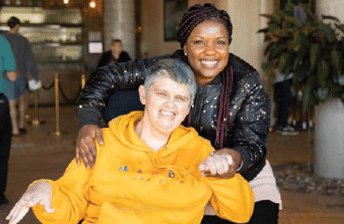
Twenty-two group homes opened, the beginning of our supported shared independent living offering.
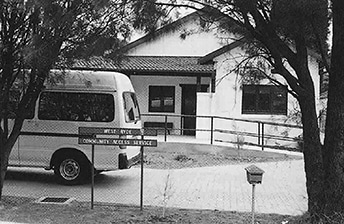
Community Access Service opened at West Ryde for adults with complex needs to access community-based activities.
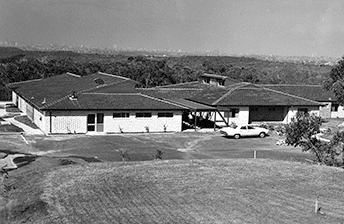
Venee Burges Hostel opened, enabling adults with cerebral palsy to live independently.
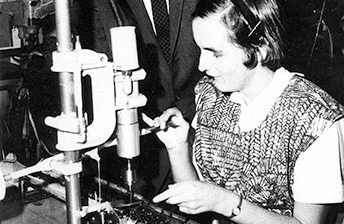
Centre Industries opened, offering training and employment for adults with cerebral palsy.
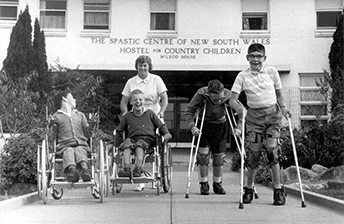
Country Children’s Hostel, later known as McLeod House, opened at Allambie Heights.
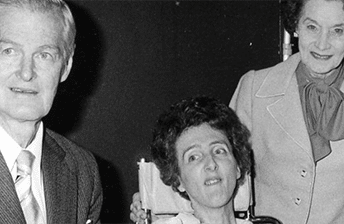
The Spastic Centre opened its doors with only £32 and a small group of parent volunteers.
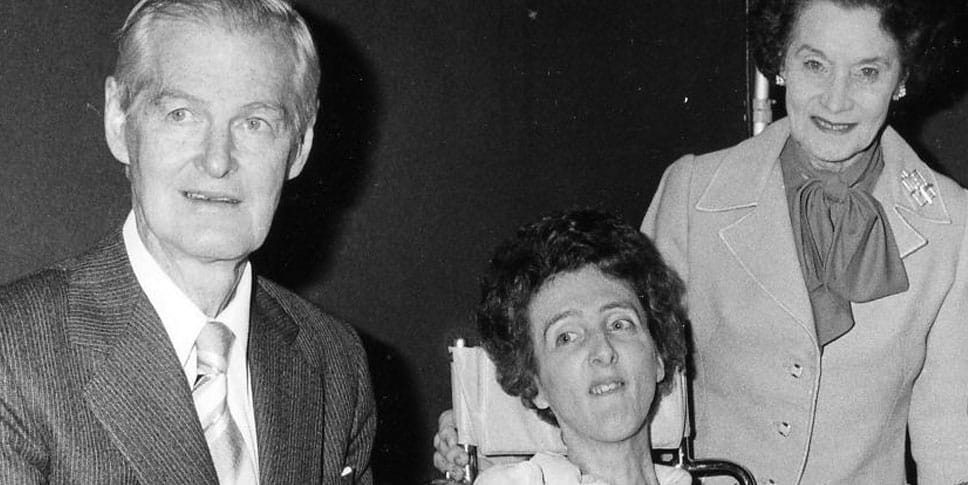
Humble beginnings in 1945
Cerebral Palsy Alliance, then known as The Spastic Centre, was founded in 1945 by Neil and Audrie McLeod in suburban Sydney, Australia. Their daughter Jennifer had cerebral palsy. Not to be deterred by the medical experts who said nothing could be done for children like Jennifer, Neil and Audrie set up The Spastic Centre with operating capital of ₤32, 14 children and 25 parents.
Audrie, who was a trained nurse, had read about Dr Earl Carlson, who himself had cerebral palsy and was successfully conducting programs for children with similar disabilities. The McLeods and other founding parents believed that children with cerebral palsy could be educated and, with appropriate therapy and support, take their place in society.
In 1954, the Australian Cerebral Palsy Association was formed. Audrie became the first President and was the NSW delegate to the International Cerebral Palsy Association.
As the demand for placements at the original Mosman site increased, a new school was built and later extended. It also became evident that, as the children grew older and reached school leaving age, further facilities and services were needed.
A large parcel of crown land was obtained at Allambie Heights on which one, and then a second supported accommodation hostel was built as well as a medical treatment and training centre.
From 1945 until 1982 Audrie McLeod was The Spastic Centre’s Chief Executive Officer. Whilst working as a Branch Manager for Burroughs Ltd, Neil was also the Chairman of The Board of Directors and the Honorary Treasurer of The Spastic Centre from 1945 to 1974.
Creating meaningful employment opportunities
As people with cerebral palsy completed their schooling, Neil had a vision of establishing a large factory where people with physical disabilities would work side by side with able-bodied people. In 1961 Centre Industries was established in Allambie Heights, largely built with volunteer labour and donated materials.
Over the next 11 years the Centre Industries factory, now known as Packforce, was extended following the winning of major contracts from Telecom, Sagem and GTE Australia Ltd.
In 1974, Neil resigned as a Director of The Spastic Centre to take up the full-time position of Managing Director of Centre Industries. At this stage, Centre Industries was employing some 300 people with physical disabilities and 200 able-bodied people.
Global recognition and awards
The work of the McLeods was recognised by many overseas organisations who were keen to learn from The Spastic Centre model of a parent-inspired and managed organisation.
So impressed were the Japanese that The McLeod Society was founded in Tokyo in 1976 as a tribute. The Centre Industries model of providing training and employment opportunities for people with physical disabilities, was the inspiration for a similar factory in Kansas, USA in 1975.
In 1979 Neil was awarded Father of the Year and honoured with an OBE for his outstanding services to people with cerebral palsy. Audrie was awarded an MBE and later a CBE. Their daughter Jennifer, who was the inspiration behind The Spastic Centre, passed away in 1986 at the age of 48.
Read more about the history of The Spastic Centre – Nothing is Impossible by Neil McLeod.
Audrie McLeod, CBE, MBE (1912 – 1992) co-founder of The Spastic Centre
Neil McLeod, OBE (1909 – 1993) co-founder of The Spastic Centre
The Spastic Centre opened its doors with only £32 and a small group of parent volunteers.
Country Children’s Hostel, later known as McLeod House, opened at Allambie Heights.
Centre Industries opened, offering training and employment for adults with cerebral palsy.
Venee Burges Hostel opened, enabling adults with cerebral palsy to live independently.
Community Access Service established at West Ryde to provide adults with complex needs access to community-based activities: the first project of its type in NSW.
Twenty-two group homes opened, the beginning of our supported shared independent living offering.
Established a Registered Training Organisation, now called Training Alliance.
Research Foundation and Cerebral Palsy Alliance Research Institute founded, now a global leader in cerebral palsy research.
Australian Cerebral Palsy Register set up, now one of the largest databases of its kind globally.
The Spastic Centre changed its name to Cerebral Palsy Alliance to focus attention on cerebral palsy, and pay tribute to our alliance of clients, families, staff, donors, volunteers, government and researchers.
World CP Day established; over 100 countries currently participate.
A friends of Cerebral Palsy Alliance organisation established in New York.
Remarkable, our innovative disability tech start-up accelerator, launched.
CPA research reveals a 30% drop in the birth prevalence of cerebral palsy in Australia.
Collaborated on Australia’s first stem cell clinical trial for people with cerebral palsy.
ResusRight develops a neonatal resuscitation monitor with funding from Cerebral Palsy Alliance.
STEPtember’s global fundraising campaign raises over $20 million.
Launched our first Reconciliation Action Plan.
Launched our third Early Diagnosis Clinic – in the Hunter Region.
Launched Young Changemakers program
A leadership program for young adults with CP
Launched new centre in Roselands
State-of-the-art facility for south-western Sydney